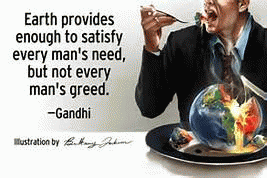Readings for 8th Sunday in Ordinary Time: IS 49:14-15; PS 62: 2-3, 6-9; I COR 4: 1-5; MT 6: 24-34.
Today's liturgy of the word raises the question of work and money -- always two difficult elements of life for those claiming to follow Jesus' Way. They're difficult because both occupy so much of our attention and lives that they can distract us from what's really important -- what Jesus calls "the kingdom of God." Consequently, in this morning's Gospel selection, Jesus tells us to back off from both money and work while opening ourselves to the abundance of God's Kingdom.
For American workaholics, that's surprising. It's especially challenging for those who love to attack "the undeserving poor" -- that is, workers empowered by government programs even like the Affordable Health Care Act. (I'll get to that in a minute.)
About money Jesus directly compares the worship of God with the common attitude Americans adopt towards money -- or as Jesus puts it, "Mammon" (the name for an idol). It's impossible, Jesus says, to make money the focus of your life while claiming to serve God. In fact money can make us hate God. But that's not the surprising part.
What is surprising is that Jesus' claim comes very close to saying that loving God should make us hate money. That seems to be the meaning of his words recorded in today's selection from Matthew. Jesus says, "No one can serve two masters. He will either hate one and love the other, or be devoted to one and despise the other. You cannot serve God and mammon."
In other words, there's a choice to be made here: serve God or money; hate and despise money or hate and despise God. No one can have it both ways. The text seems to bear that reading, don't you think?
Of course Jesus' pronouncement will lead many to "clarify" his words to mean don't be attached to money. It's the service of money -- it's making money your master -- they would explain, that causes hatred of God.
Okay. But who among us (even financiers, banksters and hedge fund managers) would claim to serve money even though they spend all their waking hours scheming about it. Who would admit that they're attached to money, or have made it their master? Even those 85 individuals proud of owning as much as half the human race would probably deny that they "serve" money or that it's their master. (And if they're right, we can stop our discussion right here!)
On the other hand, those wishing to have it both ways might go further. They might invoke "nature." They might point out we obviously can't do without money; it's a product of nature (human nature) they might say. Some might even argue we can't even do without capitalism and its drive to "maximize profit." Capitalism and profit maximization simply represent the inescapable way the world works. They are reflections of the natural order. If they allow 85 people to own more than half the world, so be it. That's simply natural. (Please hold that thought.)
Such talk about nature brings us to my second point -- Jesus' attitude towards work and those who choose not to. Here he definitely has a "back to nature" approach. And once again, it's surprising. Jesus is not talking about the naturalness of competition or of the law of supply and demand.
In today's reading from Matthew's version of the Sermon on the Mount, Jesus says clearly that the natural order not only minimizes the importance of money (at the very least); it also minimizes the importance of work. "Look at the birds of the air," Jesus says, "they don't sow or reap or store food in barns." Or "Consider the lilies of the field. They neither toil nor spin." Learn from them both. Follow their example.
Say what? Is Jesus intention here to discourage work itself? (Talk about contradicting "American" values!) It's easy to draw that conclusion, I think. After all, he seems to be saying don't sow or reap or store products in warehouses. Don't toil or spin. It's a short step from there to saying, "Don't work!"
Besides that, Jesus seems to have lived out that latter implication. I mean as an able-bodied 30-something, he left his job as a carpenter to wander from village to village in Palestine philosophizing and apparently living on hand-outs. On the road, he had no home and must have sought shelter from friends. Moreover, he got rough fishermen to leave their nets and follow his example of what appears to be idleness as far as economic productivity is concerned.
In fact, Republicans today would clearly regard Jesus and his apostles as examples of the idle undeserving poor -- not to say bums -- living off the donations of hard working people. I mean, does that contradict our Protestant Work Ethic, or what?
And that brings me to that Obamacare business.
Did you follow last month's flap over the Congressional Budget Office's Report on jobs and President Obama's Affordable Health Care Act (ACA)? It said that the ACA would induce 2.5 million people to leave work. They'd escape "job lock" -- i.e. the inability to leave employment because doing so would lose them health coverage.
All hell broke loose.
(Note: You can view every article as one long page if you sign up as an Advocate Member, or higher).






